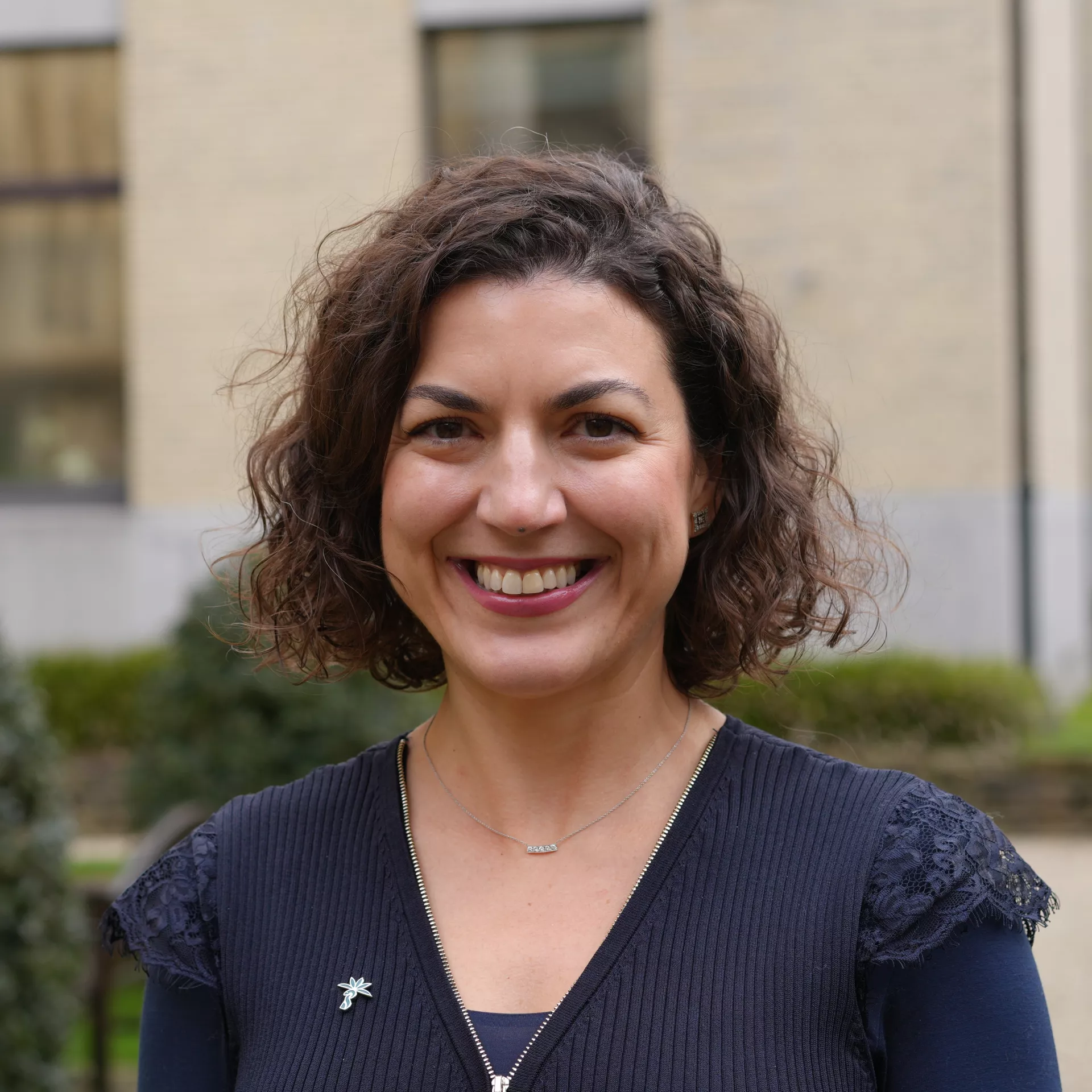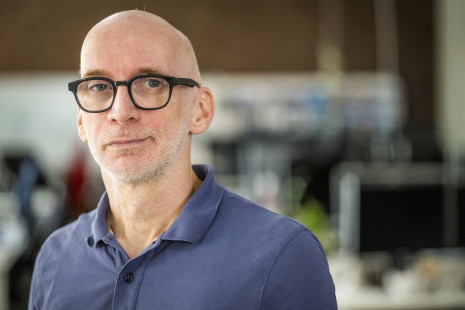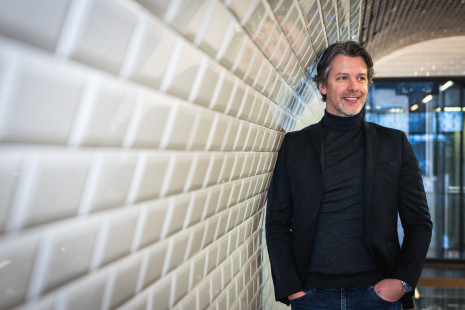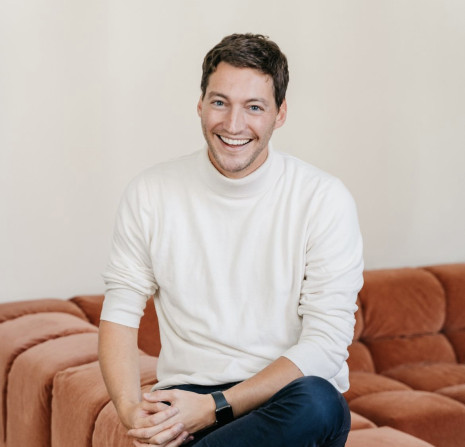Özge Tunçalp
Executive Director of the Institute of Tropical Medicine
Our mission is clear: to reduce health inequalities and help build a healthier future for all.
© Özge Tunçalp

What challenges lie ahead for global health, and how will the Institute for Tropical Medicine (ITM) continue to make a difference? We sat down with the newly appointed director, Dr Özge Tunçalp, to hear her thoughts. As a physician, epidemiologist, and former WHO expert, Dr Tunçalp brings deep international experience to her new role in Antwerp.
Given your international experience, do you feel especially prepared for this role?
“Absolutely. I’m honoured to lead an institute with such a strong global reputation in tropical medicine and public health. Before coming to ITM, I worked as a medical officer at the World Health Organization in Geneva, specialising on sexual and reproductive health. This work earned me the Maternal Health Visionary Award from the Harvard T.H. Chan School of Public Health. I studied medicine in Istanbul, and went on to complete an MPH and a PhD at the Johns Hopkins Bloomberg School of Public Health. I then pursued postdoctoral training at the Yale School of Medicine. Alongside my role at ITM, I also serve as an honorary professor at the London School of Hygiene and Tropical Medicine. Over the years, I have co-authored more than 200 scientific publications.”
How do you see ITM’s future role in healthcare?
“ITM’s strength lies in making connections: between science and real-world practice; between different disciplines; and between people across borders. Many people know us through our Antwerp clinic, which offers care in travel medicine, STIs, and HIV. However, we are also a global research and training institute with long-standing, deep-rooted partnerships. We address health challenges not only in low- and middle-income countries, as well as here in Belgium and across Europe. Today, health is deeply interconnected: infectious disease outbreaks, climate-related health threats, antimicrobial resistance, and maternal mortality all require cross-sector and cross-regional collaboration.”
What trends do you expect to shape the field?
“I can see three major shifts ahead: a move towards precision public health, a greater focus on equity and trust, and an increasing reliance on AI and digital tools in everything from research to service delivery. These changes are not intended to replace people, but rather to enhance care making it faster, fairer, and more responsive.”
What will your first steps be as director?
“My top priority is listening to staff, partners, students, and our broader community. I recently spent a week in the Democratic Republic of the Congo, visiting our partners, and was deeply inspired by the work I saw there . We're now refining our strategy, focusing clearly on impact, equity, and sustainability. This involves refining our scientific priorities, investing in systems that promote collaboration, and increasing our international engagement while maintaining our presence in Belgium and Europe. Providing high-quality clinical care in Antwerp remains at the core of our mission. We are also strengthening our support for researchers, both here and at our partner institutions, by improving access to tools for innovation, policy engagement, and communication. Our aim is not just to generate knowledge, but to ensure that it shapes healthcare delivery and governance.”
Which initiatives are closest to your heart, and why?
“With a background in sexual and reproductive health, I’m passionate about the power of evidence to drive meaningful change. What excites me most about ITM is the opportunity to work across the entire research spectrum, from biomedical discovery to clinical trials to public health implementation. I’m especially committed to projects that bridge science and impact. And I deeply believe in empowering researchers and institutions in the Global South to lead and co-develop research agendas. Mutual learning and local ownership are key to building stronger, more resilient health systems.”
What challenges does ITM face today?
“These are challenging times for science. The global funding and political landscape is becoming increasingly fragmented, making it more challenging to secure long-term investment in global public goods. At the same time, we’re navigating rapid scientific and technological shifts, from AI to data governance. Our priority is to stay grounded in our values: scientific excellence, independence, and mission-driven work. This means diversifying funding, investing in people and partnerships, and cultivating a more inclusive and collaborative culture. We’re also launching a master plan to modernize our buildings and infrastructure, making ITM future-ready while preserving our beautiful Art Deco heritage in the heart of Antwerp.”
What role will technology and innovation play in the future of ITM?
“Technology, especially AI, is reshaping healthcare, from diagnostics and logistics to prevention and prediction. However, innovation isn’t just about what’s possible; it’s also about what’s purposeful. At ITM, we’re committed to responsible and equitable innovation. Our new ‘Health Innovations for All’ (HI4A) initiative focuses on translating scientific breakthroughs into practical, accessible, scalable, and ethical solutions. This includes AI-enabled tools that are co-created with partners, field-tested, and grounded in real-world contexts. As I recently said at FTI SuperNova, the real power of technology isn’t in the code. It lies in the choices we make about how and where to apply it. At ITM, we choose to innovate with purpose, guided by science, grounded in equity, and focused on impact. Our mission is clear: to reduce health inequalities and help build a healthier future for all.”
Bio
Name: Özge Tunçalp.
Job title: Executive Director of the Institute of Tropical Medicine.
Passionate about: Singing, reading, and lifelong learning.
What drives me: Making a meaningful difference in people’s lives.
Entrepreneurs that inspire me: Anyone working at the intersection of science and art.
Recommended podcast: Transmission, the award-winning series, now in its third season.


